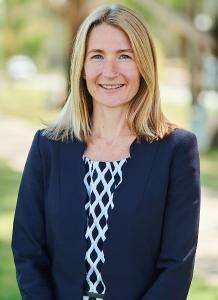2nd KAS-EUCERS Energy Policy Dialogue: Energy Strategies: Germany, New Zealand & Australia - Regional Programme Australia and the Pacific
The German delegation included: (1) Dr Joachim Pfeiffer MP - Spokesperson for Economic and Energy Policy of the CDU/CSU Parliamentary Group, German Bundestag (2) Prof Dr Friedbert Pflueger - Executive Director, EUCERS, King's College London, (3) Dr Joachim Lang - Director General, Federation of the German Industry (BDI), (4) Dr Frank Umbach, Research Director, EUCERS, King's College London and (5) Thomas Yoshimura - Desk Officer for Japan, Korea, Australia, New Zealand and the Pacific, KAS Germany.
At the CEOs Roundtable in cooperation with the GNZCC in Auckland, the German delegation discussed renewable energy & energy efficiency with representatives of the cooperation partner and its members from the business community as well as the National Party of New Zealand’s spokesperson for energy policy, and the Party’s spokesperson for agriculture. At the Roundtable Discussion in cooperation with NZIIA, NZBEC and EECA in Wellington, the German Delegates debated the trilemma of balancing energy security, affordability & environmental sustainability in Germany and New Zealand. The third main event was the Breakfast Panel Discussion in cooperation with GACC as well as Bird & Bird in Sydney, where the German and Australian experts could exchange their views on current energy policy challenges for their respective country. The Roundtables enabled the participants to identify differences and commonalities in regards to energy policy issues as well as possible areas of cooperation between Australia, Germany and New Zealand. One possible pathway: the generation of renewable energy by New Zealand and, in particular, Australia, and export of any excess energy in the form of hydrogen to Germany. The Roundtables were complemented by various meetings with government representatives, energy authorities and academics during which the delegation was inter alia briefed on the regulatory framework of the electricity market in New Zealand, the Snowy Mountain 2.0 scheme in the Australian State of New South Wales, etc.
A highlight of the Dialogue was the “New Zealand North Island Energy Infrastructure Tour” jointly organised by GNZCC and EECA. The Tour included the visit of a hydro power station and a geothermal power station where the delegation was briefed on energy generation in the Northern part of New Zealand. Another highlight was the visit of an Australian company that has developed a new type of battery as well as a procedure for the transformation of biomass, waste plastic and industry residues into bio crude.
KAS Australia would like to thank its cooperation partners without which the Dialogue would not have been possible



